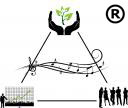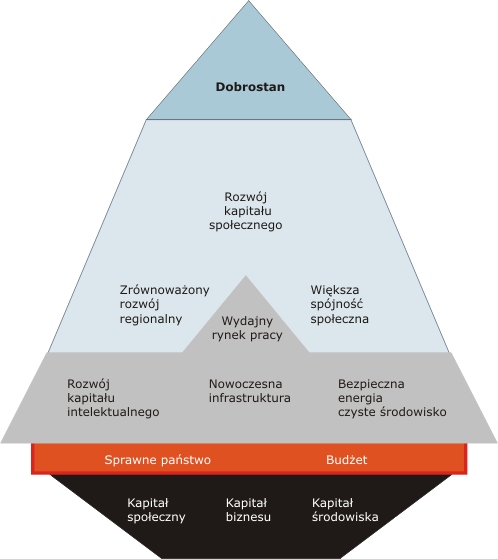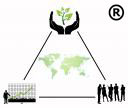Poland 2030. Development challenges.
Wanda Pazdan
20 Jun 2009
Voice in the public discussion on the Green Paper “POLAND 2030 – Development challenges”
On June 17, 2009, the Prime Minister of Poland, Donald Tusk presented a report “POLAND 2030 – Development challenges.” The document presents 10 biggest challenges Poland will be facing within the next two decades:
- Growth and competitiveness
- Demographic condition
- High professional activity and adaptiveness of labour resources
- Adequate infrastructural potential
- Energy and climate safety
- Economy based on development of knowledge and intellectual capital
- Solidarity and regional cohesion
- Improvement of social cohesion
- Performing state
- Poland’s social capital growth.
The expression ‘sustainable development’ has been used several times , sometimes with additional word: ‘regional.’ It is clear that the report, which is to be the framework for a long-term Strategy for Development of Poland, does no implement the EU Sustainable Development Strategy (UE SDS) –http://ec.europa.eu/sustainable/docs/renewed_eu_sds_pl.pdf, which according to the EU takes priority over the Lisbon Strategy. This means that as of today Poland has no binding Sustainable Development Strategy and it will not have one in the near future, unless the public discussion on the Report changes it.
In September 2009 Member States of EU plan the analysis of SDS implemention in the countries of EU …
In the face of the above, talking about ‘civilisational leap’ – isn’t it slightly exaggerated?
I am afraid that the presented polarisation and diffusion model of development does not guarantee the civilisational leap (the model can be found in the section “POLAND 2030 – Development Changes FINAL RECOMMENDATIONS,” page 375 of the Report in Polish and page 6 in English version of Final Recomendations http://www.polska2030.pl/ ).
Justification:
Only demographic development, economic growth and performing state were assumed as solid foundations for development of Poland. Out of three sustainable development capitals, the authors of the report notice only two: social and economic (performing state is the social capital). THEY FAIL TO SEE THE ENVIRONMENTAL CAPITAL!
The planned policies and indicators of success do not include topics related to the environment.
Till 2030 no changes are planned in the tax system toward shifting the tax burden from labour to consumption of resources and energy or environmental pollution.
Lack of the environmental capital in Poland’s development foundations will result in financial problems faced by local communities in implementing delegation of tasks and services pertaining to, for example, social circles – (planned Welfare Society).
Communication, education, labour market, social trust, performing state are all very important development factors, but failing to include the environmental capital in the foundations for development of Poland for the next 20 years is a big mistake. Reasonably used environmental capital may provide a big labour market and generate enormous profits in the long term – the Report discusses long term issues! Integration of three aspects (business, society, environment) with each action is crucial.
Proposal to amend the model
How different is this model comparing to one presented by the authors of POLAND 2030 report? It is the vision of including the environmental capital, as significant dimension of each action, irrespective of whether related to production, service, finances, administration, healthcare sector, culture, sports, or tourism. This is the vision which cares about the quality of life, the well-being in which the shift is made from “to have” to “to be.” It does not imply an obstacle to the development but rather indicates a direction fitting for the 21st century.
Under the environmental law, which defines sustainable development, the Report, which aspires to be a base for strategy, is subject to the environmental impact assessment.
I think some significant changes should be made in the model presented by the authors of the Poland 2030 – as for example those presented above. Otherwise the environmental impact assessments of strategies and programs created in the framework of the version of the report “POLAND 2030 – Development challenges,” published in June 2009, should be negative.
Additional proposal
Inclusion of the Balanced Scorecard in the Polish management process, where the economy, society and the environment would be treated as the “Client,” is another thought to ponder. In other words,tokens of success described in the Report should be extended by target environmental quality indicators.
Wanda Pazdan












